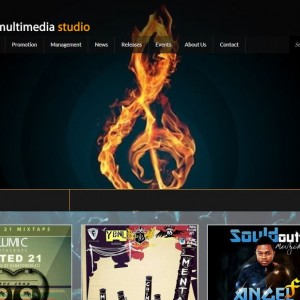
6 Ways to Optimize Your Website for Higher Search Engine Rankings
You must have read a lot about website optimization, SEO, and conversion optimization.
Website optimization is a process of refining websites for better user experience, boosting search engine traffic and most importantly improving business.
Website optimization in recent years has totally shifted towards great user experience and page speed.
It is not a secret anymore, Google has openly told this many times that you should focus on optimizing your website for the best user experience. It will results in better search ranking overall.
What is SEO in 2018?
SEO is a process of optimizing websites for better user experience, aesthetics, content and improving the page speed.
These few factors influence your website ranking considerably. Of course, backlinks still hold an important value but it is not certain for how long.
Why?
Because Google algorithm has changed a lot in recent years. Rank Brain is the new algorithm introduced in 2015 by Google. Rank Brain depends a whole lot on artificial intelligence. If it find new search queries which were never used before, it can make a guess as to what words or phrases might have a similar meaning and filter the result accordingly.
Before using AI of this caliber Google search team was using defined algorithms to show search results in Google search. This approach has a few problems of their own, such as it was easier for people to manipulate search rankings.
With Rank Brain in action, this is not the case anymore.
Check out Google’s research Blog for more details about Neural Networks, Machine Learning and research they are doing on different projects.
Keeping that in mind, let’s simplify how you can imply the best SEO practicesto get more customers:
- Create unique and descriptive page titles
- Make use of the “description” meta tag
- Improve the structure of your URLs
- Make your site navigation easier
- Optimize Content readability
- Use keyword rich HTML heading tags
- SEO for Mobile Phones
- Use Google Search Console and Google Analytics
Website Optimization 2018
Fortunately, there are ways to optimize your website that, while not guaranteeing high ranking on search engine results pages, do provide some great opportunities to generate website traffic and boost your conversions.
1: INCLUDE VIDEO CONTENT
Any website would be seriously lacking without prioritizing video as a main content medium.
Just look at some of the key stats about YouTube:
• YouTube has over a billion users. That’s nearly one-third of all of the people on the Internet!
• YouTube reaches more 18-34 and 18-49 year-olds than any cable network in the U.S.
• Over half of all YouTube views come from mobile devices.
More and more companies are starting to incorporate video into their content marketing strategy. With its incredible popularity, video is no longer just an option when it comes to marketing – it’s a MUST. You see, Google is constantly changing its criteria for ranking websites and determining their placement on search results pages. Complicated algorithms comb over all the various facets of a website, from the keywords to the images.
And, yes, video content.
Video has become such an invaluable part of any digital marketing strategy, but it does need to be optimized in order to be effective. You want to include a carefully tuned mix of keywords, text, video language, distribution, and promotions. Have a strong video presence on multiple channels, including YouTube, and you’ll definitely notice a difference in your website traffic.
2: PRODUCE RELEVANT, IMPACTFUL CONTENT
Search engines take into account a whole host of factors to determine the relevance of your content and website. It’s not just relevancy in terms of topic that’s important, but also how closely your website and its content matches the search someone is conducting. For example, search results for a “red white blue bikini” in the month of December would yield a totally different result set than the same query in July. If a search engine is able to figure out what the user is looking for, it will be able to offer up a better set of results for that search. That’s why it’s so important to produce quality, relevant content.
Content that isn’t directly relevant to the user’s search engine query will probably never show up in the results at all, which is why optimizing the relevancy of each and every page on your website is so important.
3: FOCUS ON BRAND AWARENESS
Increasing your website’s popularity heavily relies on boosting brand awareness. In order for your website to be popular with your target audience – or just popular in general – that means your content asset (page on the website, video, or image) needs to be well-liked. This usually comes about in the form of other websites providing a ‘backlink’ to your site or landing page. Creating brand awareness and growing your website’s popularity is the best way to optimize an asset for higher placement within search engine results. This could be done through strong and effective marketing, keyword placement, strategic domain choice, and other SEO fundamentals.
4: MAKE SURE YOUR WEBSITE IS EASILY ACCESSIBLE
The harder it is for search engines and your audience to access and navigate a website, the lower it will rank in search engine results, and lower in terms of user popularity. Nobody wants to take the effort to wade through tons of pages, deal with slow load times, or have distracting popups. Speed and security are two of the biggest factors that determine search engine placement. Sure, it’s important to make sure the visitor’s experience is a top priority, but having a safe Web destination that loads quickly and efficiently gets rewarded with much higher rankings.
Improving the load times of you website’s pages AND ensuring the experience of accessing and navigating your site meets user expectations will boost conversions and search results placement.
5: ABOUT THE KEYWORDS
You need to incorporate your industry keywords all throughout your site. In order to increase your site’s optimization, you need to include those keywords as much as possible. However, the placement of those keywords has a HUGE role to play in your rankings.
You want to include them in:
• Titles (The HTML element that tells search engines what your webpage is about.
• Descriptions
• Headings
• Content
• Images and their alt text
• URLs/domains
Incorporate keywords naturally, rather than just stuffing them in, or you will be flagged by search engines AND have poor content on your site.
To get the most out of this optimization, start with the webpages that generate the most traffic. Then, optimize as you go when you create more pages in the future, such as blog posts or product descriptions.
6. Use Google Search Console & Google Analytics (Highly Recommended)
If you want to track users of your website, where are they coming from, what are they searching, what are your most popular pages, etc… you can use Google search Console and Google Analytics to know your website audience more.
Using WordPress as a CMS? Read this WordPress SEO guide to optimize your site further.
If you are looking for an SEO expert to boost your site traffic, then I can help you achieve that. I have worked with clients from small to medium sized businesses. Helping them boost their site ranking. Get in touch now!








